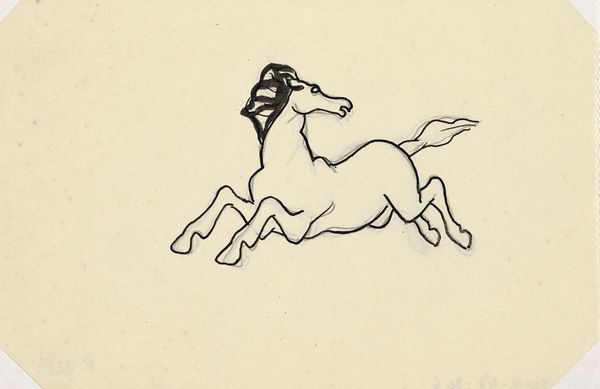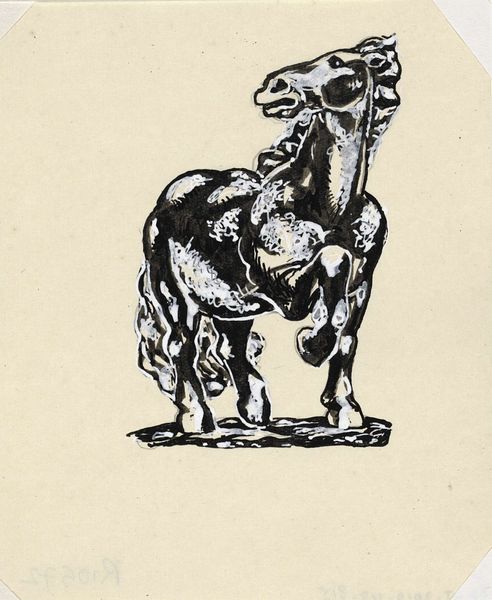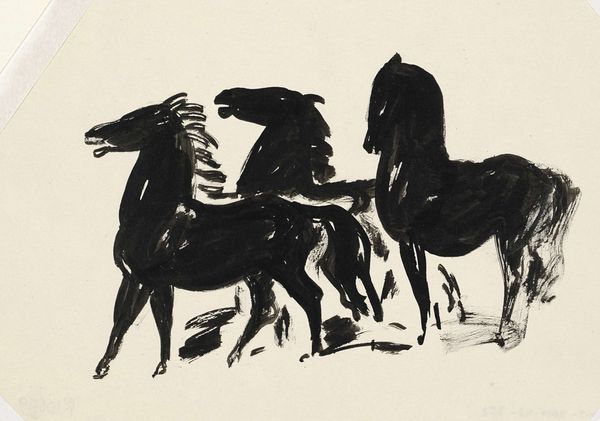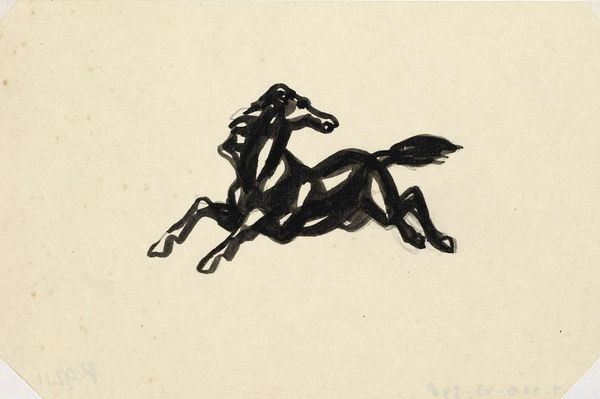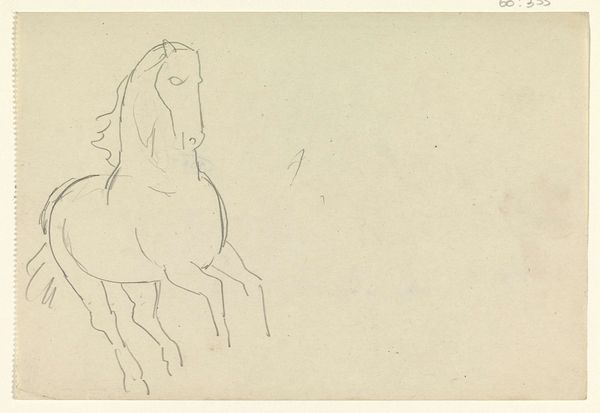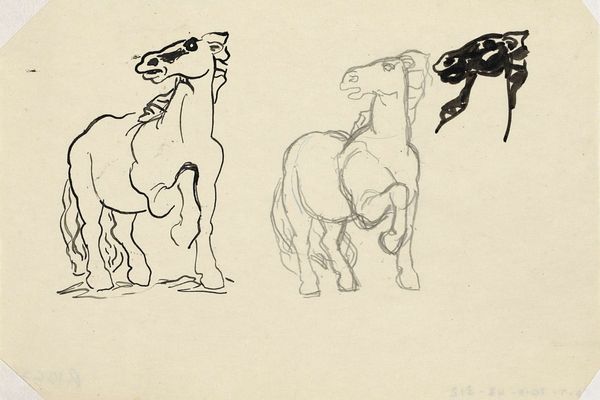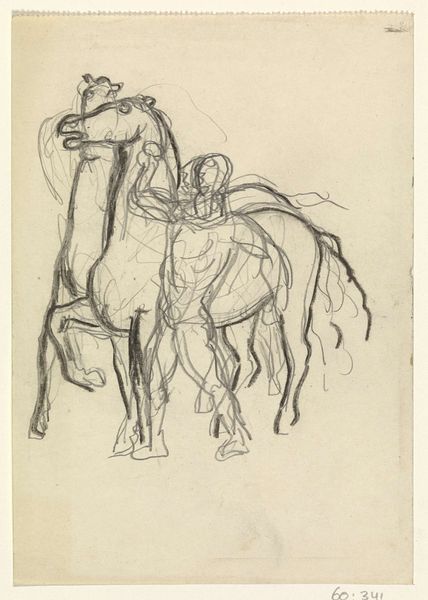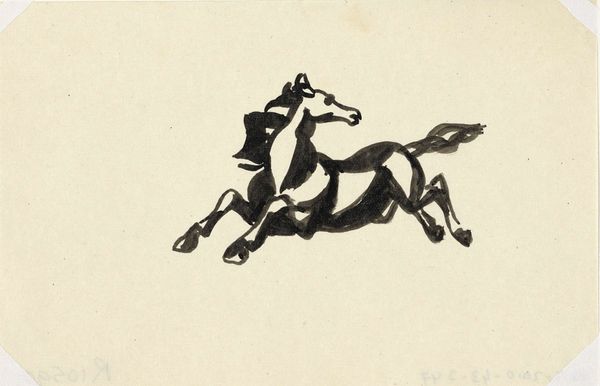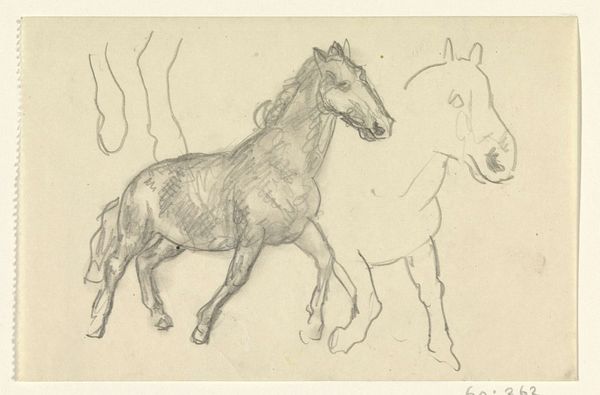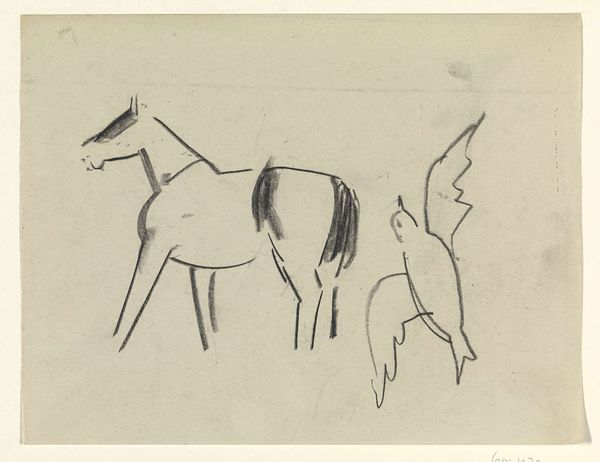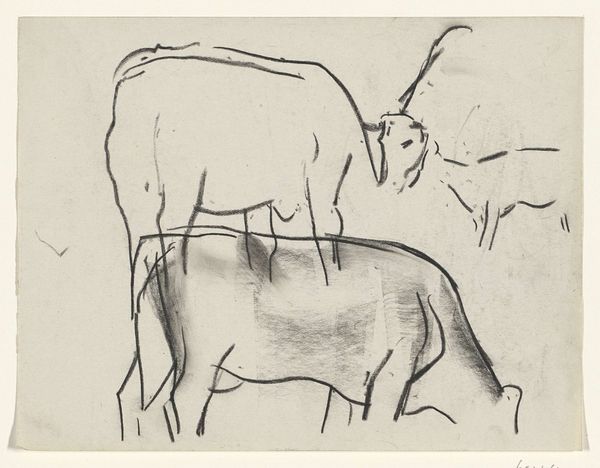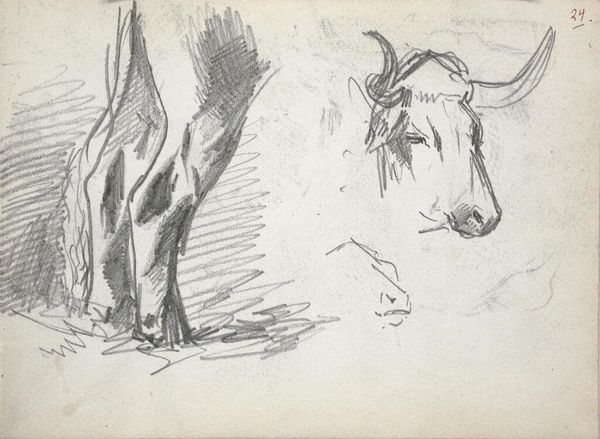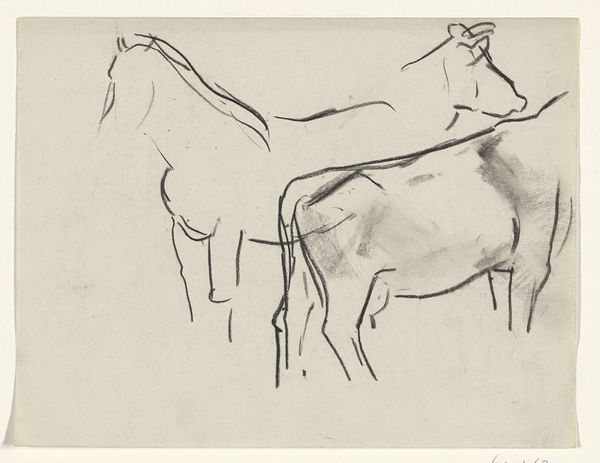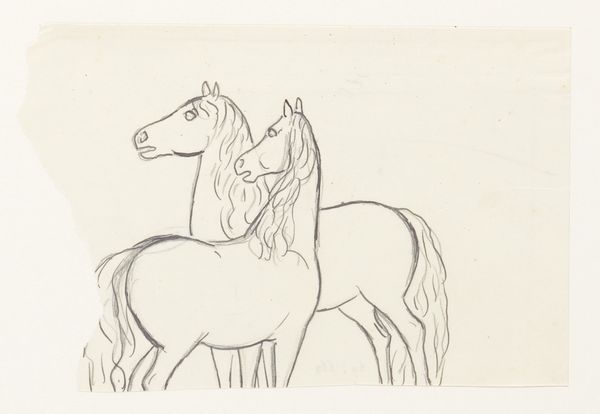
Dimensions: height 133 mm, width 196 mm
Copyright: Rijks Museum: Open Domain
Curator: This drawing, from sometime between 1925 and 1940, is titled "Zonder titel (paard)", which translates to "Untitled (Horse)". Leo Gestel rendered it in ink. It resides here at the Rijksmuseum. Editor: Immediately, I’m drawn to the economy of line – such thick, confident strokes, but so few! It makes the animal feel powerful and almost restless, straining against its simple confines. Curator: Absolutely. The expressive quality aligns Gestel with Expressionism, a movement rooted in reflecting subjective feeling above objective reality. We should consider how his position in interwar Europe informs this portrayal. Horses carried potent social and political meaning across European cultures at this time, particularly in visual propaganda. Editor: Good point. And thinking about the making itself, it is interesting to me that he has used solely ink. Ink’s relative permanence necessitates quick confident movements with little scope for amending mistakes: something so suited to a dynamic animal like this! I like to imagine Gestel observing, recording then trusting the movement of his own hand. Curator: This contrasts so markedly with the social context of artistic patronage in the Netherlands at the time, where artists were expected to present well-polished and clearly allegorical artwork. Editor: But Gestel has deliberately titled it "Untitled" indicating that the meaning is far more subjective; more personal! And thinking more about his medium – mass produced ink – the cost must have been considerably less than paints and this impacted artistic creativity enabling artwork to become more democratic. Curator: A powerful thought! It reminds us that Expressionism isn't just a style. It also represented a radical challenge to academic art. Editor: Exactly, a perfect medium for his revolutionary message! The image shows us both what it’s like to observe an impressive horse, and something about the politics of being an artist in that period! Curator: Thank you. It is so interesting how context helps to shed light on the purpose of art production and collecting at the time. Editor: For me it shows how process drives an individual to communicate with as much passion, or as many complex emotions as possible with a simple material!
Comments
No comments
Be the first to comment and join the conversation on the ultimate creative platform.
